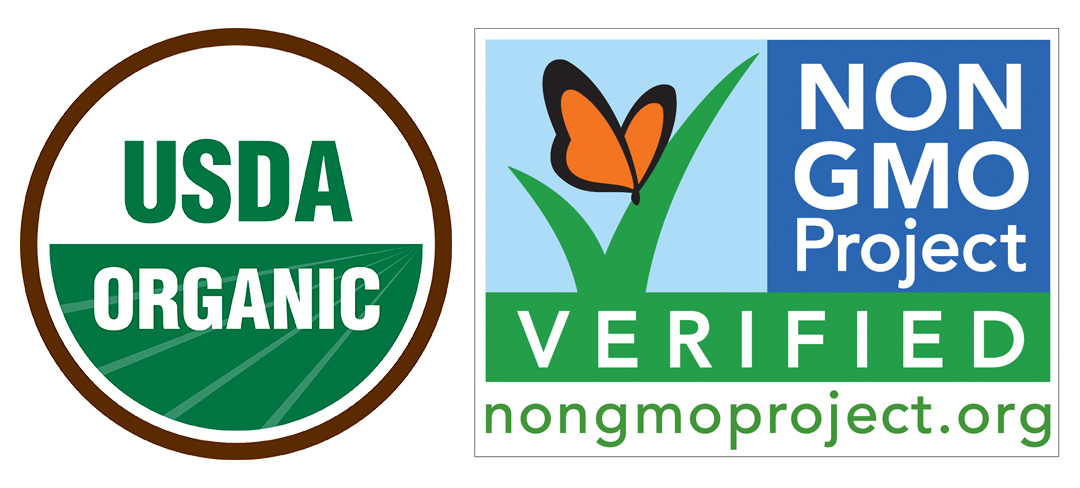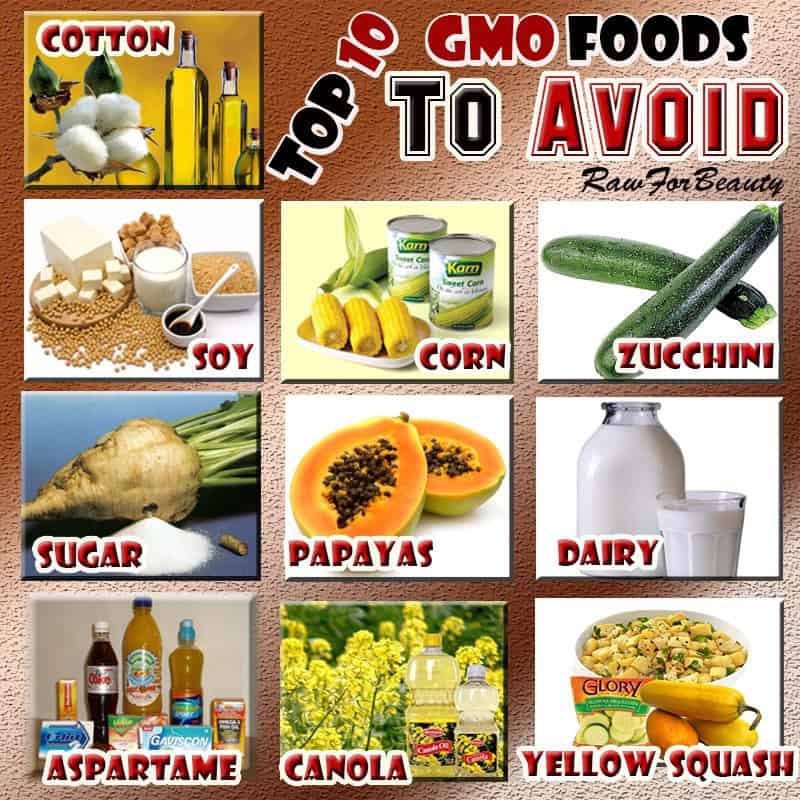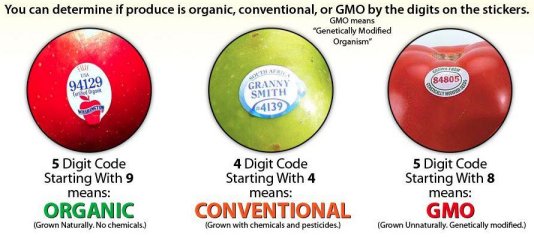41 products with non gmo labels examples
What is Bioengineered Food? - The Non-GMO Project Bioengineered, or "BE" for short, is the federal government's new term for GMOs. Under the Bioengineered Food labeling law, certain BE foods containing detectable modified genetic material must disclose the presence of BE ingredients. The clause "detectible modified genetic material" is crucial because it excuses many products that ... GMO Crops, Animal Food, and Beyond | FDA Only a few types of GMO crops are grown in the United States, but some of these GMOs make up a large percentage of the crop grown (e.g., soybeans, corn, sugar beets, canola, and cotton).. In 2018 ...
en.wikipedia.org › wiki › Genetically_modified_organismGenetically modified organism - Wikipedia A genetically modified organism (GMO) is any organism whose genetic material has been altered using genetic engineering techniques.The exact definition of a genetically modified organism and what constitutes genetic engineering varies, with the most common being an organism altered in a way that "does not occur naturally by mating and/or natural recombination".

Products with non gmo labels examples
Non-GMO vs Organic - What's the Difference? A non-GMO classification can be on all kinds of products including fresh fruits and vegetables, as well as meat, poultry, dairy, and eggs. This means the animals supplying the food, whether by meat or milk, have not been fed a diet that consists of any genetically modified foods either. What Does Organic Mean? Food Label Confusion: Natural vs. Clean Label vs. Non-GMO vs. Organic For example, non-GMO doesn't necessarily mean that the product is "GMO-free" due to the many opportunities there are in the production environment for contamination. The verification also doesn't evaluate exposure to glyphosate or certify the product as organic. Organic: The USDA certified organic seal is the gold standard in food labeling. Deconstructing Food Labels - Part 4 GMO Labels Corn grown for POPCORN is not GMO corn. - Soybean - mainly used for oil and animal feed - Cotton - mainly used for oil and animal feed, and textiles. There are no GMO grapes, bananas, bell peppers, peanuts, wheat, or other crops available to consumers right now. There isn't.
Products with non gmo labels examples. › Druids-Grove-Non-GMO-Gluten-FreeAmazon.com : Druids Grove Lactic Acid ☮ Vegan ⊘ Non-GMO ... Along with nutritional yeast, it helps impart to vegan cheese the authentic flavor of dairy cheese. This seems to be an excellent brand of lactic acid for making vegan cheese. It is a white, granular powder that seems to be free of impurities. It is certified non-GMO, vegan and Kosher. Below is general information about lactic acid. Ashland | Products Antaron™ soja glyceride is non-GMO, vegan suitable and compatible with both organic and inorganic ingredients. ... Derived from cellulose, a natural, abundant and renewable resource, benecel™ hpmc products are water-soluble, non-ionic polymers. Benecel™ hpmc products are efficient thickeners and film formers that enhance foam production ... Understanding Organic and Non-GMO Labels - Better Nutrition All of the top six GM crops in the U.S.—sugar beets, soy, alfalfa, corn, canola (canola oil), and cotton (cottonseed oil)—are genetically modified to be herbicide tolerant, which means lots of extra herbicide is being sprayed on the plant, and that has led to weed resistance. Oil Free Salad Dressings: 5 Healthy Plant-Based Recipes to Try 31/07/2020 · Again, we see soybean oil, sugar, eggs, and dairy products (almost certainly from factory farms), and that sneaky “natural flavor.” Oh yes, and the vinegar is white vinegar, most of which comes from GMO corn.. Both dressings contain dairy, which is high in heart-attack promoting saturated fat.Dairy also contains the protein casein, which has been shown to …
foodrevolution.org › blog › oil-free-salad-dressingsOil Free Salad Dressings: 5 Healthy Plant-Based Recipes to Try Jul 31, 2020 · If you’re looking for pre-made, oil-free salad dressings, you may want to consider Dr. Joel Fuhrman’s line of bottled salad dressings. Each dressing is made with whole food, organic ingredients, and has no added salt, oil, or sugar. You can also rest assured Dr. Fuhrman’s dressings are fully plant-based, non-GMO, and gluten-free. 8 misleading food marketing labels - AGDAILY So, even though it is true, a "No Added Hormones" label on your chicken, turkey, or bacon is a bit deceptive because it's true whether they've decided to add that label to the packaging or not. Hormones are allowed to be provided to beef cattle so that they grow quicker and, therefore, require less feed. Non GMO/ Organic Food Products and the Placebo Effect Non-organic ingredients allowed per National List may be used, up to a combined total of five percent of non-organic content (excluding salt and water). Product labels must state the name of the certifying agent on the information panel. At least 70 percent of the product must be certified organic ingredients (excluding salt and water). How GMO food labels impact consumer choices - Genetic Literacy Project Labels such as "non-GMO" (absence labeling) and "contains GMO" (presence labeling) serve as negative signals for GM foods and tend to shrink their market share. The market share shrinkage effect is...
Anthony's Almond Flour Blanched (4lb), Batch Tested Gluten-Free, Non … High Protein - 28 grams of our blanched almond flour contains over 6 grams of high quality plant-based protein. This not only helps you meet your daily protein needs, but also aids in the fluffiness of baked goods! Low Carb - If you’re looking to keep your carbohydrate intake on the lower side, almond flour is perfect for you! 28 grams of our almond flour has just over 5 grams of … Ask UConn Extension: What Do the Food Labels "Organic," "Natural," and ... Food manufacturers and third parties created the non-GMO label. Ingredients labeled non-GMO cannot use genetic modification. However, only a few products (such as corn and soybeans) even have a genetically modified version. No governmental agencies such as the FDA or USDA certify the non-GMO label. Foods without a GMO version can have a non-GMO ... SHOCKER: Most products labeled "Non-GMO" can still be grown with sewage ... The "Non-GMO" label, such as the popular "Project Non-GMO Verified" label, can be affixed to food products that still contain "biosludge" biological waste, which can include syringes, blood vials and pathogens from surgical wraps and Petri dishes used to develop dirty vaccines, including COVID-19. Systemic insecticides (neonicotinoids and fipronil): trends, uses, … 19/09/2014 · Global growth in the insecticide market. In 1990, the global insecticide market was dominated by carbamates, organophosphates, and pyrethroids. By 2008, one quarter of the insecticide market was neonicotinoid (rising to 27 % in 2010; Casida and Durkin 2013), and nearly 30 % was neonicotinoid and fipronil combined, with the other classes correspondingly reduced …
The Difference Between GMOs & Non-GMOs Non-GMO labeling steps are nearly equivalent but require lesser money for certification. The organic label means free of GMOs and pesticides. Meanwhile, the non-GMO label indicates that the food product was not created with genetically modified organisms (GMOs). But again— this does not imply that the product is organic.
en.wikipedia.org › wiki › Genetically_modified_soybeanGenetically modified soybean - Wikipedia Examples of transgenic soybeans. The genetic makeup of a soybean gives it a wide variety of uses, thus keeping it in high demand. First, manufacturers only wanted to use transgenics to be able to grow more soy at a minimal cost to meet this demand, and to fix any problems in the growing process, but they eventually found they could modify the soybean to contain healthier components, or even ...
Food label primer: What does 'organic', 'natural' and 'non-GMO' mean? However, only a few products (such as corn and soybeans) even have a genetically modified version. No governmental agencies such as the FDA or USDA certify the non-GMO label. Foods without a GMO ...

Washington GMO Labeling Initiative Concedes | The Alliance for Natural Health USA | Gmo labeling ...
Beware of Non-GMO Food Labels - Balance Into Health GM food has negative connotations for many consumers because of general mistrust of the food production industry, but also because anti-biotech activists have been so effective at stoking concerns. It's led to an sharp increase in non-GMO labels, even on products like salt, which can't be genetically modified because sodium chloride is an ...
What Do the Food Labels "Organic," "Natural," and "Non-GMO" Actually Mean? Ingredients labeled non-GMO cannot use genetic modification. However, only a few products (such as corn and soybeans) even have a genetically modified version. No governmental agencies such as the FDA or USDA certify the non-GMO label. Foods without a GMO version can have a non-GMO label.
GMO, Organic vs Non-GMO Is There a Difference? Wh - Intengine The terms GMO, non-GMO, and Organic are labels that inform consumers about how a product was made. Understanding this distinction is essential when making a personal choice around food purchasing or before entering the important debate on policies and labeling of genetically modified food products.
Genetically modified soybean - Wikipedia Examples of transgenic soybeans. The genetic makeup of a soybean gives it a wide variety of uses, thus keeping it in high demand. First, manufacturers only wanted to use transgenics to be able to grow more soy at a minimal cost to meet this demand, and to fix any problems in the growing process, but they eventually found they could modify the soybean to contain healthier …
Non-GMO vs. Organic: Differences Explained - Pacific Foods The Certified Organic label comes straight from the USDA and is much more comprehensive than any non-GMO label. For foods to be listed as Certified Organic, they must follow many requirements during the product cycle from the soil to the final product. ... For example, The Non-GMO Project provides verification for non-GMO products through the ...
Most Common GMOs - Kimberton Whole Foods Looking for the USDA Organic or Non-GMO Project Verified labels is the easiest way to avoid buying GMOs, but note that not all companies or farmers can afford to get these certifications – particularly small local farms. Plus, remember that not every crop grown has a genetically modified alternative at this point in time, so many items, such ...
Organic Versus Non-GMO Labels | Gymtfitness.com From gluten-free and kosher to low-carb and low-cal, the information overload can make matters all the more confusing. The two most commonly known labels to most shoppers are organic and non-GMO labels. However, the two can be confusing to even the most health-knowledgable consumer.
› pmc › articlesSystemic insecticides (neonicotinoids and fipronil): trends ... Sep 19, 2014 · Global growth in the insecticide market. In 1990, the global insecticide market was dominated by carbamates, organophosphates, and pyrethroids. By 2008, one quarter of the insecticide market was neonicotinoid (rising to 27 % in 2010; Casida and Durkin 2013), and nearly 30 % was neonicotinoid and fipronil combined, with the other classes correspondingly reduced (Jeschke et al. 2011).

GMO labeling is NOT impossible, pictures of major US products already labeled for sale in the UK ...
Amazon.com : Druids Grove Lactic Acid ☮ Vegan ⊘ Non-GMO … Along with nutritional yeast, it helps impart to vegan cheese the authentic flavor of dairy cheese. This seems to be an excellent brand of lactic acid for making vegan cheese. It is a white, granular powder that seems to be free of impurities. It is certified non-GMO, vegan and Kosher. Below is general information about lactic acid.
Non-GMO vs Organic: What Are The Differences? - EATomology Non-GMO plants don't contain enhanced nutrients. GMOs can be treated with a greater amount of nutrients. An example is rice that's treated with beta carotene. This was developed to help prevent blindness from a lack of vitamin A, which is rife in regions where people's consumption of this essential nutrient is too low.
Genetically modified organism - Wikipedia A genetically modified organism (GMO) is any organism whose genetic material has been altered using genetic engineering techniques.The exact definition of a genetically modified organism and what constitutes genetic engineering varies, with the most common being an organism altered in a way that "does not occur naturally by mating and/or natural recombination".
Know Your Labels! The Butterfly Makes Non-GMO Easy The Butterfly Makes Non-GMO Easy There are a lot of labels at the grocery store, including one recent arrival: the new Bioengineered ("BE") food disclosure. The BE label sprung from the overwhelming public demand for labels on genetically engineered foods — but in practice, the label is confusing.
Non-GMO Labeling This Year And Beyond - Flavor Insights There is a 6-step process to earning a non-GMO label from the Non-GMO Project: Select a technical administrator that works with the Non-GMO Project to evaluate your products. Sign a contract with the administrator. Sign a Non-GMO Project License Agreement with your technical administrator. Product evaluation, which may include laboratory testing.
› most-common-gmosMost Common GMOs - Kimberton Whole Foods Looking for the USDA Organic or Non-GMO Project Verified labels is the easiest way to avoid buying GMOs, but note that not all companies or farmers can afford to get these certifications – particularly small local farms. Plus, remember that not every crop grown has a genetically modified alternative at this point in time, so many items, such ...









Post a Comment for "41 products with non gmo labels examples"